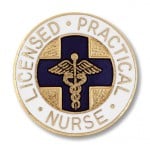
Ethical Dilemmas for LPNs

Ethical dilemmas are something that every nurse will eventually run in to. How these dilemmas are handled can drastically change the outcome of many situations. Let’s say an issue comes up, but the nurse is busy and “does not really have time to deal with it at the moment”. This does happen, and
Involvement of Family
There will be times where the family will become involved and try and make
Consent for Treatment
Informed consent for treatment is first and foremost explained by the physician. The nurse should never explain a surgery, risks, or complications before the provider. You could mislead them, give them false information, etc. However, if the patient is still feeling uneasy and has questions after the physician has talked to them, you can try to explain it as best you can. Some individuals will feel scared or nervous to ask the physician any questions or let them know if they don’t really understand, so they may come to you as the nurse instead. Treatment, no matter the kind, can be stressful; patients and their families will be worried. Be as informative as you can. If you have any questions, ask a healthcare member on your team or bring it up with the physician. It is the patient’s right to know and fully understand the treatment before they undergo it.
Peers’ Failures
In nursing school, you are taught that if you are aware that a colleague or co-worker is doing anything at all to harm the patient, then you should report it. They even tell you the line of command in which you report it. This is so very important. No matter how close you may be to the person committing the wrong-doing, a patient’s life could be in danger. Imagine if that was your family member that the nurse was taking care of. Nurses may want to report it, but don’t because they are scared the person may get fired and it would hurt the staffing of nurses. The ethics used here are fidelity and non-maleficence. No matter what the outcome may be for that person or your colleagues as a whole, the patient’s health and safety always come first. If you feel more comfortable confronting the individual first, then do so, but it is not always the smartest idea. Confronting the individual yourself can cause drama in the workplace, which is very unprofessional. Follow your line of command that you use within your company and give the patient the safety and security that they deserve. You are their voice when they do not know what is going on - use it! These are just a few of the ethical dilemmas that nurses will face frequently, but there are many more scenarios as you can probably imagine. It helps to think of the patient as your own family member or friend. Always remember your scope of practice, but keep ethics on the forefront of your mind. Be the voice the patients need so desperately.
Related Articles
Featured Article





